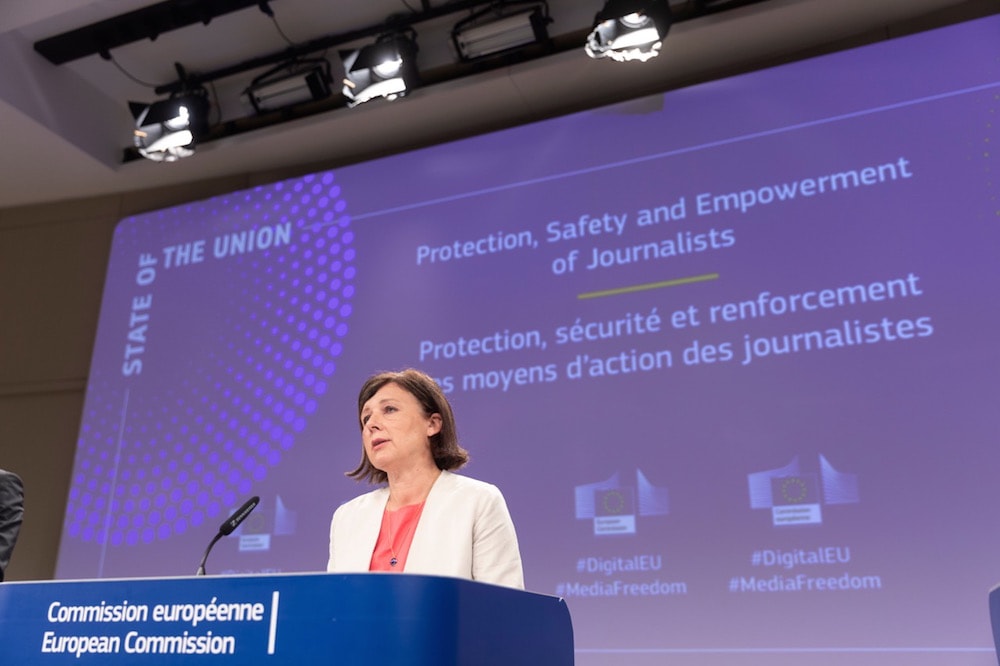Journalism is considered one of the most dangerous professions in the world. Behind every photo, every news article is the blood, sweat, and tears of the one wielding the pen. Attacks, threats, and crimes against journalists continuously take place in many parts of the world. However, despite the danger that awaits, they still bravely rush to get information and bring the truth to the public’s eyes. In the context of the raging Covid-19 pandemic, journalists are willing to commit themselves to the heart of the epidemic to bring to the public accurate and timely news about the situation. Despite hardships, they have tried their best to reflect the government’s anti-epidemic efforts impartially and effectively, propagating epidemic prevention to the citizens.

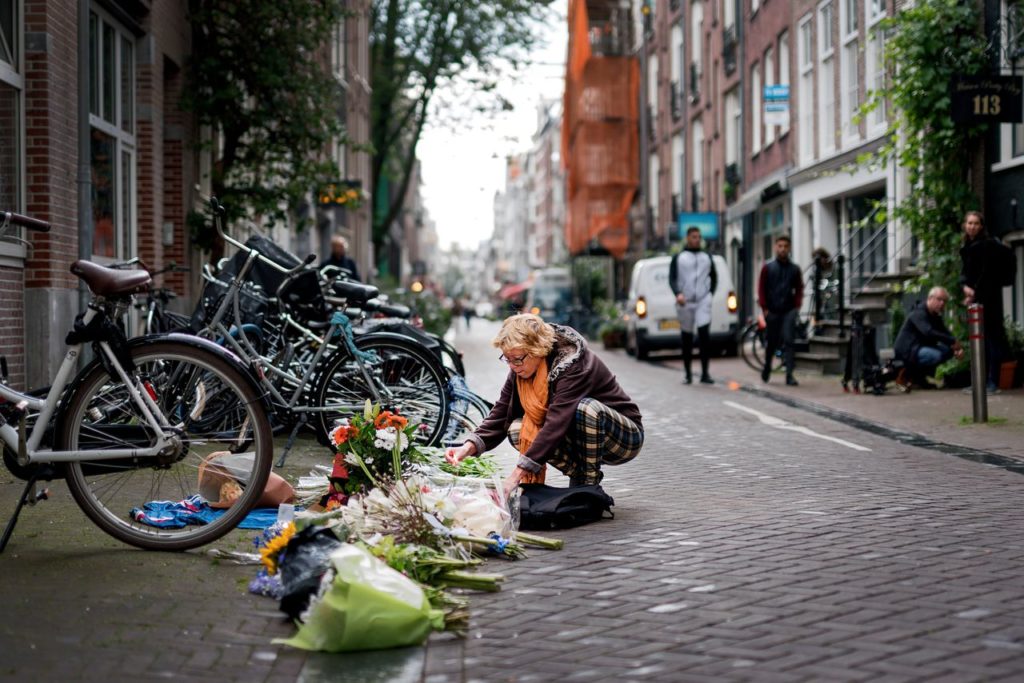
According to EC figures, in 2020, a total of 908 journalists and media workers were attacked in 23 of its member states. Since 1992, 23 journalists have been killed in the EU, most of which occurred in the last six years. Many journalists have been murdered in Bulgaria, Greece, Malta, the Netherlands, and Slovakia in recent years. In addition, journalists, and especially female journalists are facing dangerous cyberbullying behavior, with 73% of female journalists having experienced online violence at some point during their careers. This past July, leading Dutch investigative reporter Peter Rudolf de Vries was suddenly shot five times after leaving the studio on a street in the center of Amsterdam. And after just over a week of hospitalization, Vries – who was not afraid to write about the violent underworld in the Netherlands – passed away from his injuries. This incident sparks rage among the Dutch public since this was not simply an attack on a courageous journalist but an attack on press freedom.
EU Urges Its Member States To Increase Safety For Journalists
In the wake of increasing direct attacks and cyber threats against journalists, the European Commission (EC) is calling on European Union (EU) member states to increase protection to its journalists. EC President, Ursula von der Leyen stressed: “We must protect the creators of transparency—journalists. That’s why we’re making recommendations on our law policy to better protect them.” Specifically, the EC recommends that countries provide protection services as well as set up hotlines for psychological help and support for threatened journalists. The EC also urges EU states to do more to ensure that investigations and prosecutions of those who attack, assault, and threaten journalists take place in a fair and efficient manner.
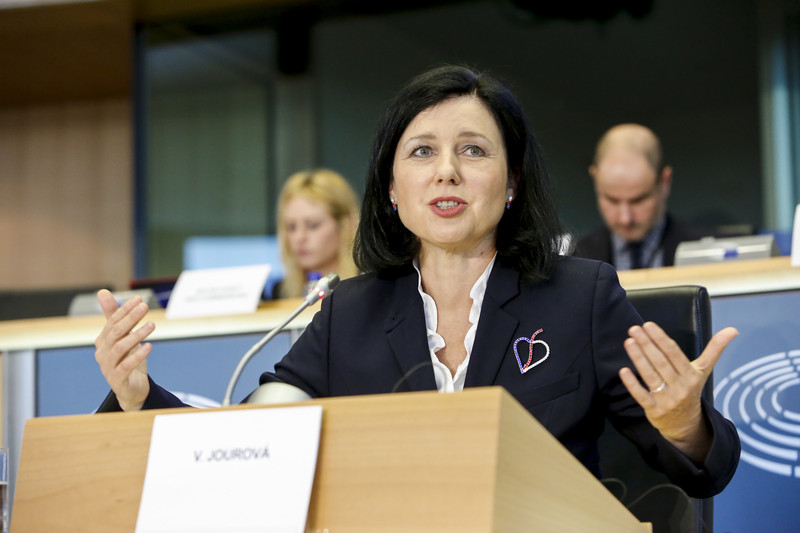
Journalists cannot be killed and threatened for their work. We need to support and protect journalists.
Vice President of the European Commission for Values and Transparency, Vera Jourova
The Vice President of the European Commission for Values and Transparency, Vera Jourova stated in one of the press conferences: “Journalists cannot be killed and threatened for their work. We need to support and protect journalists. They play an important role in society. National authorities need to do more to protect them.” The Covid-19 pandemic has shown the more important role of journalists than ever in providing information to the world. According to Ms. Jourova, member states need to take decisive action to make the EU a safer place for journalists.
Creating A Protected “Shield” For Journalists, Online And Offline
Not only were they attacked directly, many journalists and activists around the world were also attacked online through data collection using the Pegasus malware, developed by a private Israeli company named NSO. Recently, three daily newspapers including The Washington Post, The Guardian, Le Monde, and many other media outlets have coordinated to investigate a data leak involving more than 50,000 cell phone numbers since 2016. French journalists have reported being tracked with the Pegasus malware, which led to the diplomatic tensions between France and Morocco in July. The Paris prosecutor’s office (France) has decided to open an investigation into the allegations of Morocco’s intelligence agency using the Pegasus malware to spy on Le Monde journalists and AFP news reporters. Morocco, however, has denied the allegations.
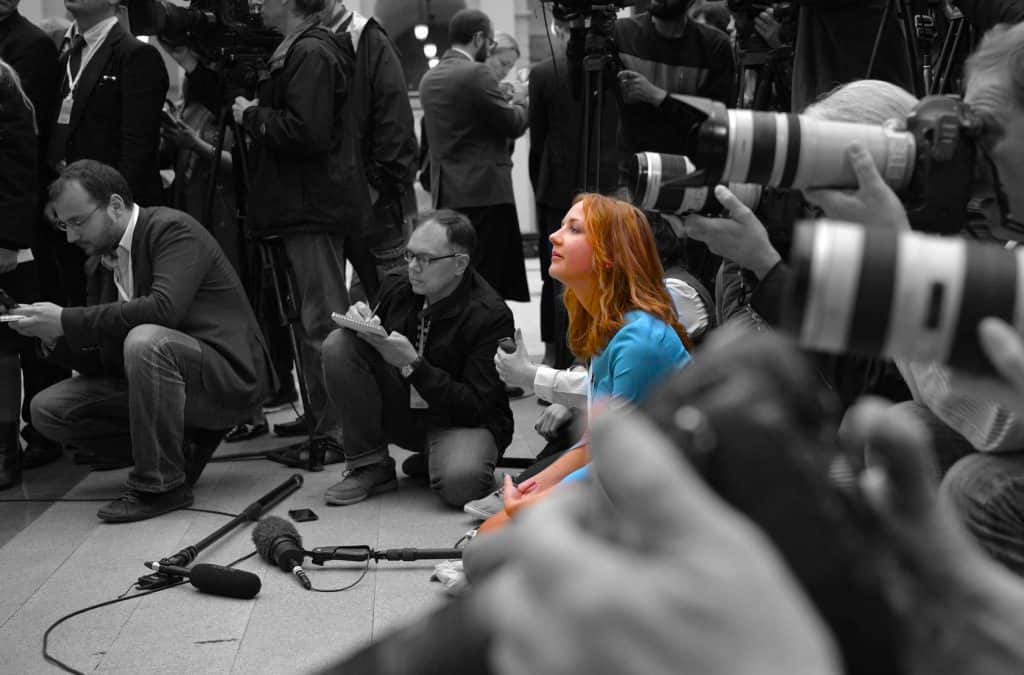
National cybersecurity agencies need to assist journalists in determining whether their device or online accounts have been violated or not
European Council
In the context of booming information technology, the EC believes that EU member states should pay attention to keeping journalists safe offline, as well as online. “National cybersecurity agencies need to assist journalists in determining whether their device or online accounts have been violated or not,” the EC noted. ‘
Loosening Regulations On Green Cards Insurance To Attract More Foreign Journalists
Not only calling for security for journalists in its member states, but the EU has also decided to relax the regulation on granting Green Cards to attract a high-quality foreign workforce to its countries, including journalists. According to the amendments recently passed by the European Parliament (EP), foreign journalists with Green Cards now only need to commit to working in the EU for at least 6 months instead of a year. The new regulation also allows journalists with a Green Card to be transferred from one EU country to another after only 12 months of working, which is much shorter compared to the previous regulation. In addition, their family members can also apply for jobs in the country they are staying in.
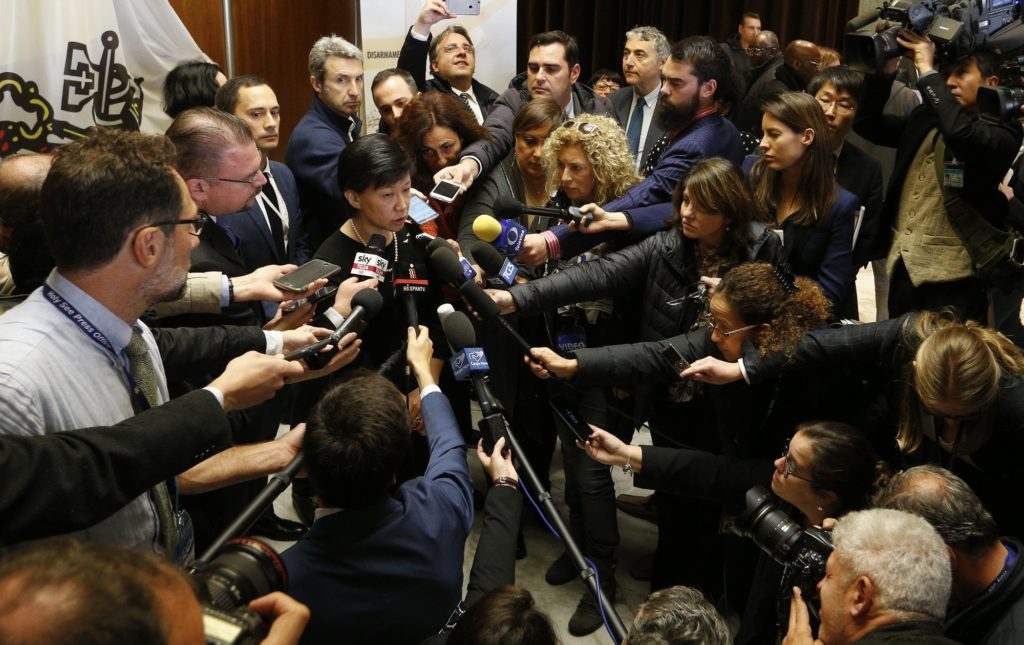
Many analysts believe that the EC’s new regulations are progressive and necessary to create more “shields” to protect journalists – who always face many risks and challenges while working in the field.
No Tolerance For Crimes Against Journalists, A Message For The World Leaders
Today we celebrate International Day to End Impunity for Crimes Against Journalists.
On this day, many agencies of the United Nations, governments of countries, and international organizations have simultaneously called out for the protection of journalists from violence across the world, with the message “no tolerance for crimes against journalists”. France’s Eiffel Tower was turned off on the night of November 2nd, 2018 for one minute in the remembrance of journalists around the world who have been killed, many reporters and journalists have brought to the Eiffel Tower pictures of their murdered colleagues, including Saudi journalist Khashoggi – who was murdered in the Saudi consulate in Turkey.
This year, at least 62 journalists have been murdered, and thousands more have been attacked, harassed, detained or imprisoned without trial
United Nations Secretary, General Antonio Guterres
“This year, at least 62 journalists have been murdered, and thousands more have been attacked, harassed, detained or imprisoned without trial,” said United Nations Secretary-General Antonio Guterres. According to the statistics of the NGO Press Emblem Campaign (PEC) based in Geneva, Switzerland, from 2006 to 2017 around the world, there is at least one journalist who died from violence every four days.
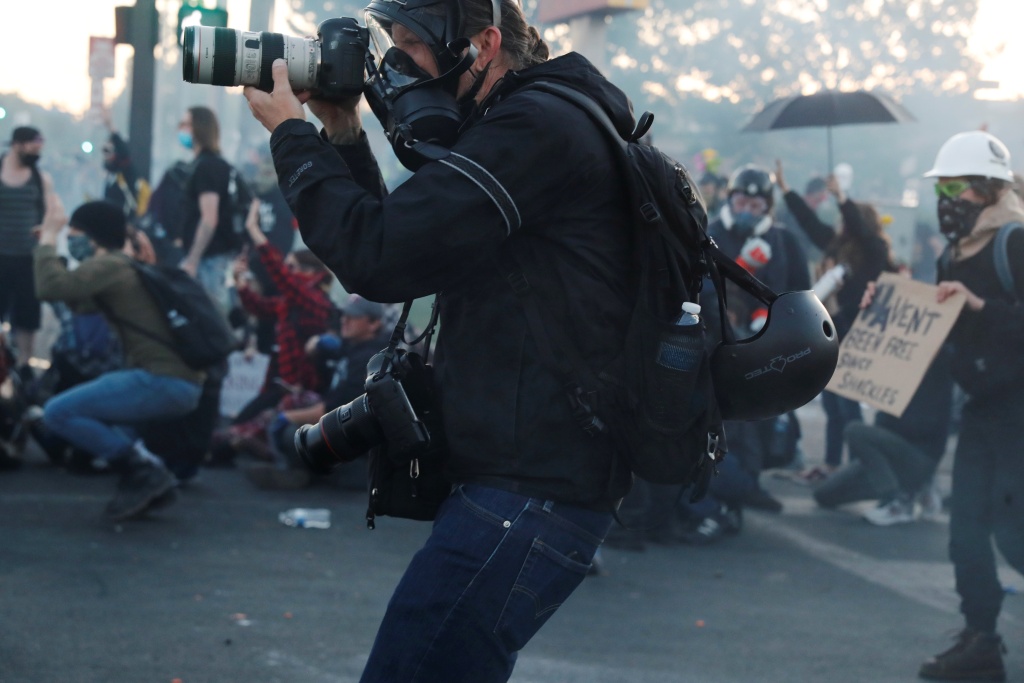
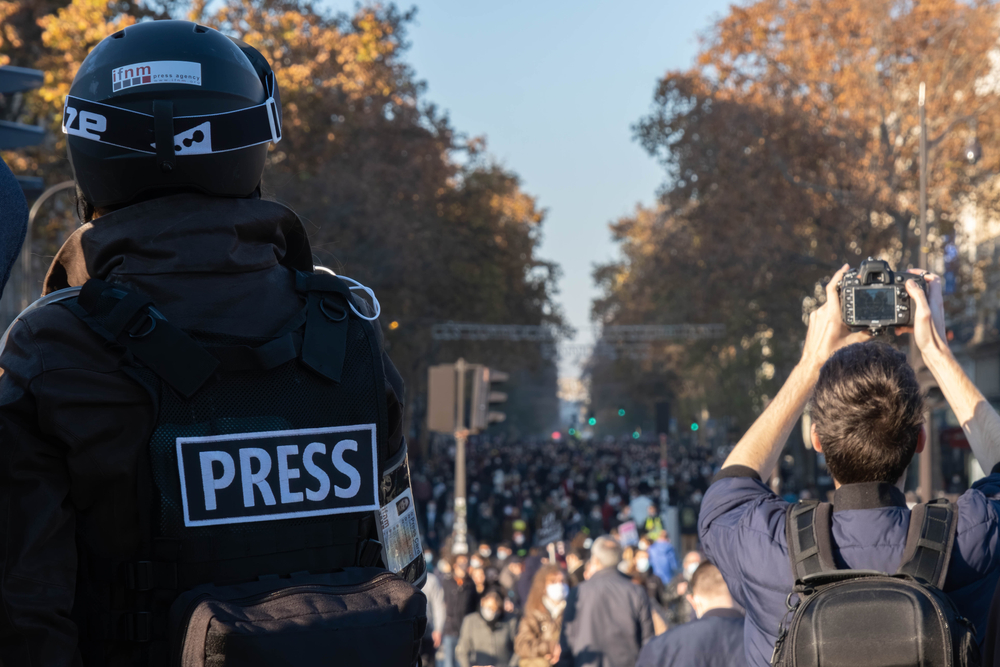
UNESCO believes that protecting journalists is a vital task for the achievement of one of its 2030 Agenda for Sustainable Development, to create conditions for the public to access information while protecting their fundamental freedoms in accordance with national laws as well as international agreements. Together with many major media partners around the world, they have launched a global campaign called Truth Never Dies, contributing to raising awareness of global citizens in the investigations of killed journalists and perpetuating their legacy by sharing their articles and their stories to the world.
It is our responsibility to ensure that crimes against journalists do not go unpunished. We must see to it that journalists can work in safe conditions which allow a free and pluralistic press to flourish
Audrey Azoulay, Director-General of UNESCO
“It is our responsibility to ensure that crimes against journalists do not go unpunished. We must see to it that journalists can work in safe conditions which allow a free and pluralistic press to flourish,” Audrey Azoulay, Director-General of UNESCO said.
IVolunteer International is a 501(c)3 tech-nonprofit registered in the United States with operations worldwide. Using a location-based mobile application, we mobilize volunteers to take action in their local communities. Our vision is creating 7-billion volunteers. We are an internationally recognized nonprofit organization and is also a Civil Society Associated with the United Nations Department of Global Communications. Visit our profiles on Guidestar, Greatnonprofits, and FastForward.
